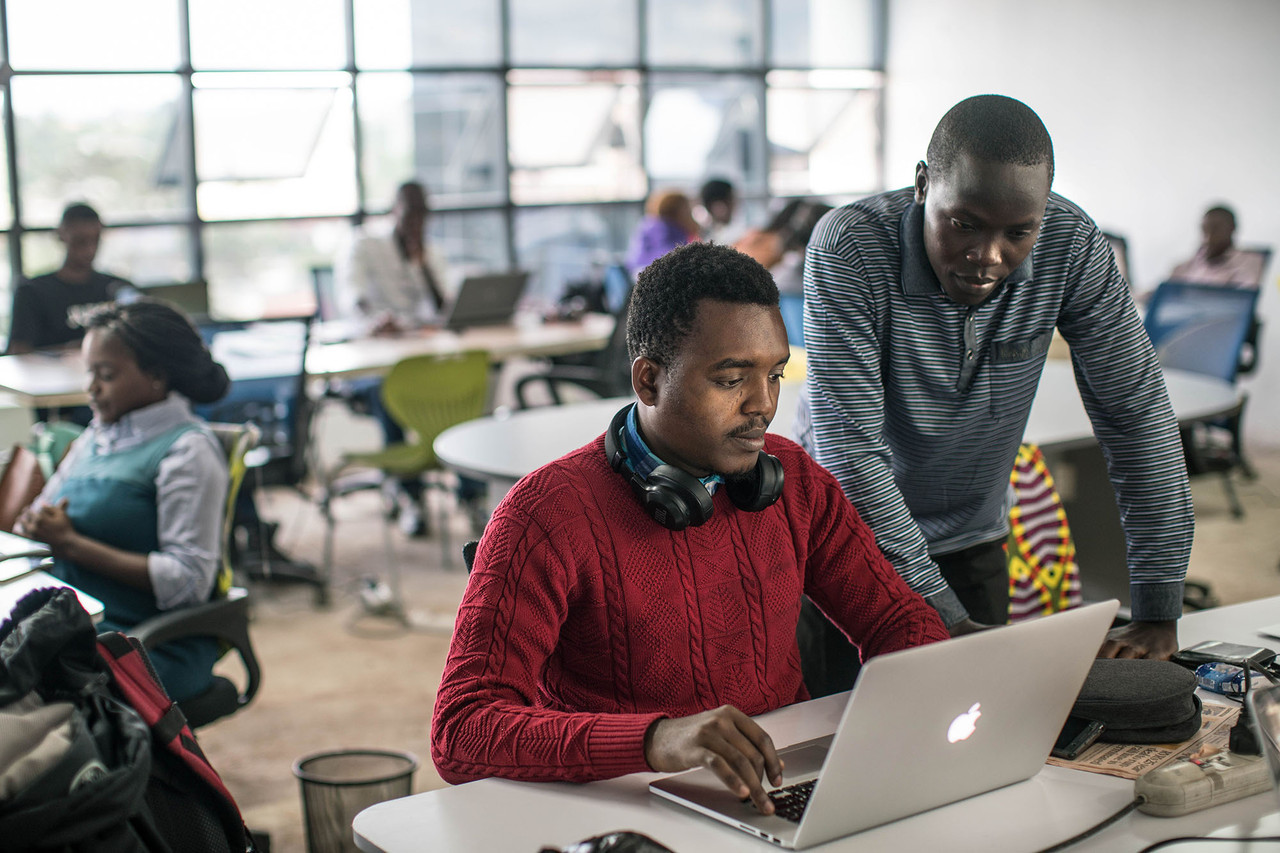Kenya is radically digitising its population. Tech stakeholders, government agencies, and giant tech firms are joining hands to ensure digital talents are readily available in the country. From establishing numerous digital talent training programs to revising the national curriculum to include coding classes, the East African country is doing all it can to make it Africa’s leading pipeline for digital talents.
As the adage goes, to whom much is given, much is expected. Kenya has been spotlighted as one of Africa’s best destinations for technology businesses to thrive. International companies looking to set up shops in Africa have been continually drawn to Nairobi, the country’s business-friendly capital. The ripple effect of this is manifold, but one that hits home is the increased demand for technical local talents in the country. This begs the question: Is Kenya able to meet up with this increasing demand?
Kenya is catching them young
In many parts of Africa, children are often neglected when stakeholders converge to discuss technology and national development. Kenya is an outlier in this case, as the east African nation has repeatedly taken strides to ensure that its youngest nationals are taught to code from childhood.
In April 2022, Kenya did what no other country in Africa has done for childhood education. The Kenyan Institute of Curriculum Development (KIDC) partnered with Kodris Africa, a leading tech publisher in the region, to oversee the rollout of a curriculum that will necessitate all students in Kenyan primary and secondary schools to learn basic coding concepts.
This news came with colossal hype and applause for Kenya, as by this singular act, the African country made a bold statement to the world: that Africa, often referred to as the continent of the future, is taking the necessary steps to compete with the world and build its future.
Following that curriculum announcement, Safaricom, Kenya’s connectivity-cum-technology company, announced in July 2022 that it would start offering coding lessons to Kenyan kids. Safaricom’s customers will now be able to purchase tokens for coding lessons on M-Pesa, the company’s fintech product. These tokens will, in turn, activate coding lessons that will last year-long on the kids’ tablets or computers. This initiative was created in partnership with Kodris Africa to deliver the government’s long-term plan to ensure digital literacy for Kenyan early learners.
“The skills that students will learn will be relevant today and tomorrow and will allow them to explore and unleash their creativity and innovativeness in a highly digitized and computerized world which offers growth opportunities,” said Mugumo Munen, CEO of Kodris Africa.
Kenya is casting a wide net
Kenya’s efforts for its kids are impressive, but the country is doing much more to ensure its youth are trained with digital skills that are globally attainable.
Almost a decade ago, Moringa, an alternative school established to develop tech skills for Kenyans, was founded in the heart of Nairobi. Since then, the startup has been training Africans in digital skills ranging from basic programming to full-stack software development.
Partnering with technology behemoths like Safaricom, Microsoft, Sendy, CloudFactory, and Little, Moringa goes the extra mile to place its graduates into high-paying tech roles. Since 2014, the company has trained an average of 500 students yearly and placed more than 85% of its graduates into top technology companies locally and globally.
Despite Moringa’s international reach, its robust talent pipeline has not been enough to satisfy Kenya’s appetite for digital talents. Tens of similar programs have been launched to replicate Moringa’s model and train Kenyans to be tech savvy. Some of these programs, like Ajira and Whitebox, were backed by the Kenyan government, while others have seen considerable support from private firms and international tech corporations.
Two days ago, in another stroke to develop Kenya’s pool of digital talents, the Kenyan government entered into a robust partnership with important stakeholders—including Safaricom and Microsoft—to launch the Digital Talent Program in Kenya.
This partnership brings together players from academia, government, community agencies, and big tech companies to embark on the overarching goal of building Africa’s biggest pipeline of digital talents. According to TechWeez, the Digital Talent Program will have 6 participating universities, 5 tech hubs, 14 training partners, and 7 government agencies in the action team.
The program will run using a hybrid learning approach of practical classwork, a mentor-matching structure, and internship placements. Some tech fields that will be covered include product design, artificial intelligence, machine learning, IoT, big data and analytics, cybersecurity, cloud computing, robotics process automation and software engineering. It will also cover hackathons, incubations, fireside chats, career fairs, annual awards, placement, and guest lecture sessions.
Remarkably, the Kenyan government has already developed a Digital Masterplan for the coming decade. The overarching purpose of this plan is to improve the collaboration of public and private sectors to strengthen the infrastructure for technological developments in the country. With all of these, it becomes clear that Kenya, the east African biggest economy, is racing to be recognised as the tech talent headquarters of Africa.





















